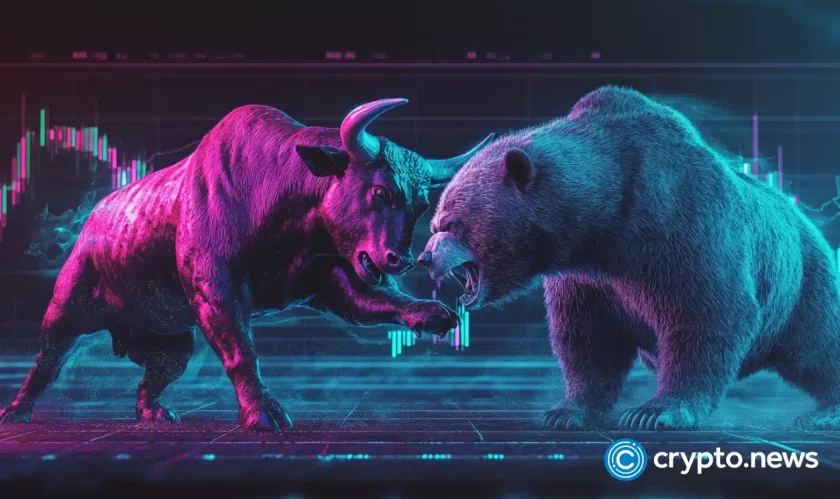Consisting of 24 Tweets over a 48-hour period, Inverse.Finance’s social media presence reads like a decentralized finance (DeFi) startup story in hyperdrive.
Over the course of its short life the fledgling protocol has already attracted $4.3 million in total value locked (a figure that seems to be rising as fast as solo developer Nour Haridy can raise the hardcap), luring depositors with the promise of passive ETH gains on DAI — gains powered by permissioned early access Yearn.Finance’s forthcoming, yield-bearing v2 vaults.
Excited to launch a new DeFi lego: @InverseFinance
Deposit Dai, earn ETH passively
Powered by Yearn V2 vaults
Guarded launch capped at $240k.UNAUDITED
— threadhttps://t.co/o6z0YlYrCf
— nour (@NourHaridy) December 18, 2020
More impressive than the TVL figure is the pace with which Haridy seems to be progressing through the prerequisite stages we’ve seen from DeFi protocols in the past. After announcing to the world on December 17th that he was working on “a new money lego,” Haridy has jumped his embryonic project through a number of hoops with ease: the launch of new WBTC and YFI-bearing vaults, the announcement of a governance token, and a retweet from DeFi maestro Andre Cronje himself.
Most notably, Haridy has actively invited hackers to test the protocol for potential smart contract exploits — a notorious rite of passage for many a protocol — hoping to head them off at the pass with what he promises will be a generous bug bounty:
Hey hackers. There’s $1.25m sitting in our contracts right now.
If you can hack them (don’t), DM for a very very attractive gov token bounty.
Rules:
1. Find an exploit that can cause loss of funds
2. Don’t try it
3. Disclose in our DMs (not publicly)https://t.co/BjnUZRPWPH— InverseFinance (@InverseFinance) December 19, 2020
All this from a protocol that doesn’t even have a logo yet.
To get a better sense of Inverse.Finance’s remarkable growth, we sat down with Haridy to talk about his progress, the future of the protocol, and what it’s like helming a one-man DeFi startup. Far from being a blustering, boastful founder spouting hot air, Haridy is thoughtful, preaching caution from investors and waving off compliments. After the interview, it was clear that if DeFi can attract more developers like Haridy, then the young vertical is headed in the right direction.
A new lego
Cointelegraph: Who are you, and what are you working on?
Haridy: I’ve working as a dev in the Ethereum space for the past few years. Mainly built gasless Dai smart wallets, such as Metacash and Mosendo. Right now I’m only working on Inverse.Finance. I think it has a lot of potential beyond its current simple MVP design.
CT: What have your past 48 hours been like?
Haridy: I’ve been working on Inverse for the past two weeks actually. The past 48 hours were no different. Just pushing updates, raising the deposit cap everyday, getting feedback from a small community of 200 in the Telegram chat. Until Andre retweeted of course
CT: Inverse Finance — why not a food name? What does it mean to you? What’s the logo gonna be?
Haridy: I think food tokens tend to rely heavily on meme power because their product is usually lacking or unsustainable. I don’t want to send that message about Inverse to other people.
CT: This tweet was very funny. How would you describe the interest pre-and-post Andre?
Haridy: The entire project is post-Andre to be honest. I first reached out to him on Telegram when I had only written the contract and he was surprisingly excited and said he’ll check it out. That was my first hint at product validation which convinced me to launch it publicly. But yeah, I was not ready for all the hype that followed his retweet. I appreciate the exposure of course although it is been super stressful.
CT: What has it been like working with the YFI team?
Haridy: Just to be clear I’m not part of the YFI team. I’m just hanging around in their chat. They just whitelisted Inverse to use their V2 vaults early. And they’ve been super helpful with integration and helped review my code and suggested very important changes.
CT: You’ve already had to goose limits higher for certain vaults. Why are people so excited about your project?
Haridy: Because Andre tweeted about it. Some people call it an Andre coin. Some people have missed on previous successful token launches by Andre and they’re very eager to make it up.
CT: As we speak you’re putting together a governance token. You seemed like you wanted to avoid that model — why?
Haridy: I’m very worried that people may trade the token irresponsibly. I’m doing my best to avoid that but there’s only so little that can be done. On the other hand, governance is the only way to align incentives with early community to stick around and help and also distributes power which is currently only held by me.
THERE IS NO https://t.co/gEyDYt5KHb TOKEN AS OF YET. DO NOT GET SCAMMED
— InverseFinance (@InverseFinance) December 19, 2020
CT: You openly solicited hackers to get THAT step out of the way, and are trying to get coverage for the protocol via Cover. This early Twitter feed is in many ways a blueprint for other devs… intentional, or just overnight startup mania?
Haridy: The latter haha. I had plenty of conversations were people who were unhappy with the decisions I’m making. Telling me that I’m irresponsible and rushing. I tried to carefully consider each opinion given how much money is at stake. But at some point I felt like I wanna do things my way for once.
CT: A solo dev putting together a passive investment fund project is nothing short of miraculous, and really shows the power of money legos. What’s next for the space?
Haridy: It’s not yet massive and plenty of projects had bigger TVL earlier. But I think it would’ve grown further if there was no cap at launch. But yeah, this project would’ve been 10x harder without having Yearn and Compound to build on top of. Definitely shows the power of DeFi legos.
I don’t know what’s next for the space but I do have a ton of crazy ideas for Inverse to try in the future. I also think there’s a great potential for more complicated automated investment strategies with varying degrees of risk to be implemented in the form of vaults. Yearn is really just the PoC in my opinion.
CT: A solo dev putting together a passive investment fund project is nothing short of miraculous, and really shows your skill and dedication. What’s next for you?
Haridy: I just worked on this for 2 weeks so far so I’m yet to prove my dedication (which I plan to). I’ve been working in this space for 4 years so naturally I earned the skill to build a project like this. Nothing supernatural. For the near future, I plan to work on expanding Inverse features and products very quickly. I want to iterate really fast and outpace everyone. I also plan to experiment with new on-chain governance models. I think we can do better than the current state of governance




